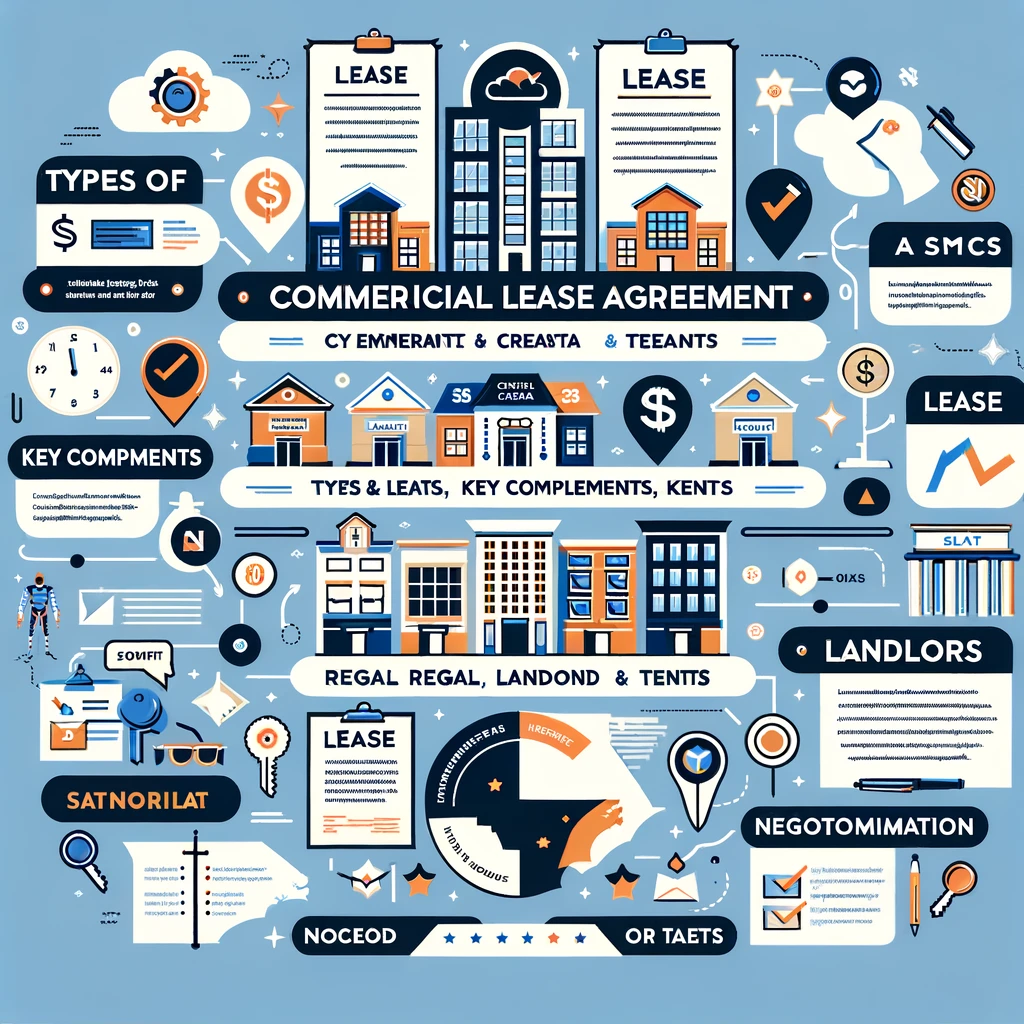The Ultimate Guide to Commercial Lease Agreements in North Carolina
Introduction
In North Carolina, a commercial lease agreement is a binding contract between a landlord and a business tenant. These agreements are pivotal for businesses looking to rent property for commercial purposes, such as retail, office, or industrial use. Understanding the nuances of commercial lease agreements in North Carolina is crucial for both landlords and tenants to ensure their interests are protected and their business operations run smoothly.

Understanding Commercial Lease Agreements in NC
Commercial lease agreements in North Carolina differ significantly from residential leases, with more negotiation room and fewer consumer protection laws. They are complex documents that outline the rights and responsibilities of each party.
Types of Commercial Leases
Net Lease: Tenants pay base rent plus a portion of the property's expenses.
Gross Lease: Tenants pay a flat fee, with the landlord covering property expenses.
Modified Gross Lease: A mix between net and gross leases.
The North Carolina Real Estate Commission provides guidelines and regulations that impact commercial leasing.
Key Components of a Commercial Lease Agreement
Lease Term and Renewal Options: Duration of the lease and terms for renewal.
Rent Amount and Adjustments: How rent is calculated and potential increases.
Use of Property: Specific uses allowed for the leased property.
Improvements and Modifications: Rules around tenant improvements to the property.
Maintenance and Repairs: Responsibilities for maintenance and repair work.
Educational resources like Duke University's Real Estate Office often provide insights into commercial real estate best practices.
Legal Considerations in North Carolina
North Carolina's commercial leasing laws are designed to protect both landlords and tenants, but they also allow for significant flexibility in the terms of the lease.
Compliance with State Laws
Ensure the lease agreement complies with all relevant state laws, including those related to commercial activities, zoning, and environmental regulations. The North Carolina General Assembly offers access to state statutes that can guide lease agreement compliance.
Dispute Resolution
Outline clear procedures for resolving disputes, whether through mediation, arbitration, or litigation. The North Carolina Judicial Branch provides resources on dispute resolution processes.
Drafting a Commercial Lease Agreement in NC
Creating a commercial lease agreement in North Carolina requires careful consideration to ensure all aspects of the lease are clearly defined and legally sound.
Hire a Commercial Real Estate Attorney
Given the complexities of commercial leases, consulting with an attorney experienced in North Carolina commercial real estate law is advisable. The North Carolina Bar Association can be a resource for finding qualified legal professionals.
Clearly Define Lease Terms
Use clear and precise language to define every aspect of the lease, from the description of the leased property to the specifics of the rent calculation.
Include All Relevant Clauses
Ensure the lease includes all necessary clauses and disclosures required by North Carolina law, addressing everything from security deposits to signage and parking.
Best Practices for Landlords and Tenants
Both landlords and tenants can take steps to ensure the commercial lease agreement serves their best interests.
Due Diligence
Tenants should thoroughly investigate the property and its suitability for their business, while landlords should vet potential tenants' creditworthiness and business viability.
Negotiation
Both parties should be prepared to negotiate terms. Understanding market standards and legal constraints can lead to a more favorable lease agreement.
Review and Update Regularly
Review the lease periodically and be open to making adjustments as business needs and market conditions change.

Create & Review Your Contracts 10x Quality and Ease
Lawyer-level AI handles all your contract needs, with real lawyers providing safeguarding support

Conclusion
A commercial lease agreement in North Carolina is a critical document that requires careful drafting and negotiation to ensure it meets the needs of both the landlord and the tenant. By understanding the types of leases, key components, legal considerations, and best practices for drafting and negotiation, parties can enter into agreements that support their business objectives and minimize potential disputes.

